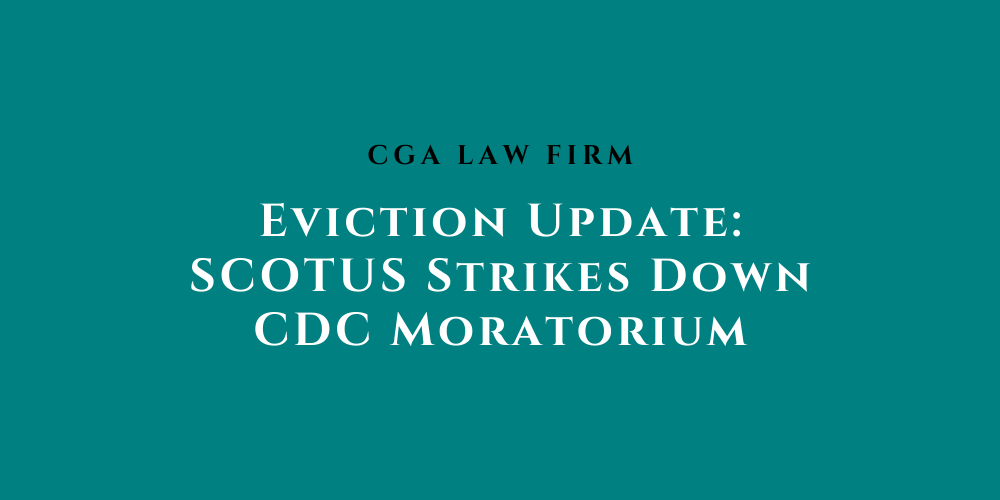
On August 26, 2021, the Supreme Court of the United States issued a per curiam decision stating that the statute on which the Center for Disease Control relied to issue a moratorium on residential evictions does not grant the CDC the authority that it claims.
The court went on to state that it would be a different matter “if Congress had specifically authorized the action that the CDC has taken.” Instead, the Court stated, the CDC imposed a nationwide eviction moratorium while claiming authority under an old statute which allowed the CDC to implement pest extermination and fumigation.
After a brief summary of the recent eviction moratoriums issued by Congress and the CDC starting in March 2020, the court went on to address the Plaintiffs in this particular case. The challenge had been brought by Alabama and Georgia realtor associations and rental property managers who sought to enjoin the CDC moratorium. The groups had challenged a prior CDC Order, which the Court had allowed to expire on its own schedule. However, the CDC re-imposed a moratorium only three days later.
SCOTUS went on to state that the moratorium involves the landlord-tenant relationship, which is an area of state law. The CDC’s “claim of expansive authority” under section 361(a) of the Public Health Service Act was stated by the Court to be “unprecedented,” especially in light of the CDC’s imposition of criminal penalties and jail time for violation of the moratorium.
One of the Court’s concerns is that the moratorium forced landlords to bear the burden of financial costs of the pandemic, including those landlords that have modest means, thereby placing them at significant risk of suffering irreparable harm. Such Landlords were deprived of rental payments and provided no guarantee of ever being paid. SCOTUS pointed out that doing this “intrudes on one of the most fundamental elements of property ownership – the right to exclude.”
As the Court pointed out, the Government has had three more months to provide fund for rental assistance and had sufficient notice that new legislation would be required for an extension of the moratorium. Although the Court acknowledged the significant value in combating the spread of COVID-19 Delta variant, it stated that the United State system does not allow Government agencies to act unlawfully. Congress, not the CDC, must decide whether further action is needed.
Read the full opinion and dissent here.
Before taking action against tenants, landlords should check for State and Local limitations or moratoriums on evictions which might still be in place. For help with eviction questions and other landlord tenant issues, contact Attorney Hunter Schenck at hschenck@cgalaw.com or using the CGA online question feature to set up a consultation.

Hunter B. Schenck
Attorney
Hunter B. Schenck provides legal services to individuals and businesses in the area of litigation.
Hunter has participated in multiple bench and jury trials while working at CGA Law Firm in both a solo and co-counsel capacity. She enjoys the opportunity to enter the courtroom and wants to help her clients obtain the best outcome for each case.
Hunter is ranked as 2021 Super Lawyer Rising Star. She is an active member of the York County Bar Association and serves as a member of the Social, Membership, and Law Day Committees. She is the Immediate Past Chair of the York County Bar Association’s Young Lawyers Section and a member of the Herbert Cohen Inn of Court. Hunter was a member of the 2015, 2017, and 2019 Bar Stools Casts.
Hunter may be reached directly at (717) 718-3950 or by email: hschenck@cgalaw.com.

